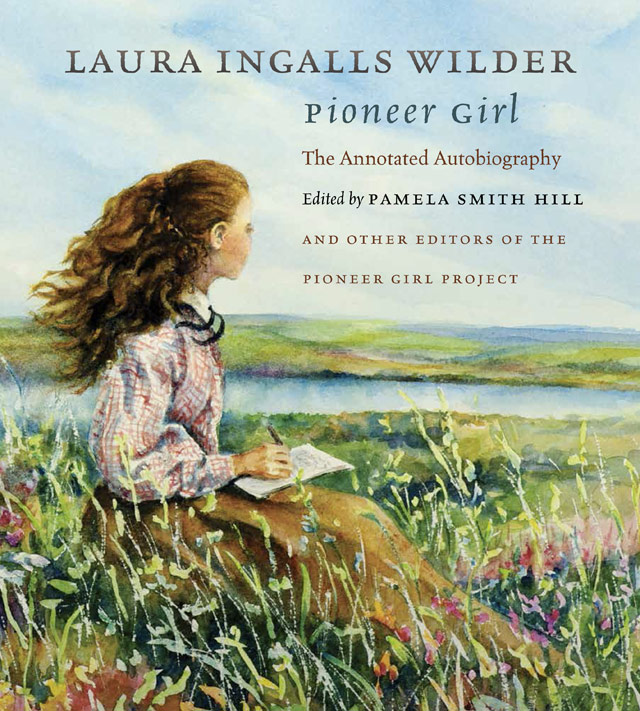Pioneer Girl by Laura Ingalls Wilder

Laura Ingalls Wilder wrote her autobiography, Pioneer Girl, in the early 1930s. The book was deemed unsuitable for publication, but Wilder reworked her story into the successful Little House on the Prairie series for children.
Now the South Dakota Historical Society is publishing an annotated version of Pioneer Girl, which includes stories from Wilder’s childhood that didn’t make it into the kids’ books. And for good reason.
It contains stories omitted from her novels, tales that Wilder herself felt “would not be appropriate” for children, such as her family’s sojourn in the town of Burr Oak, where she once saw a man became so drunk that, when he lit a cigar, the whisky fumes on his breath ignited and killed him instantly. In another recollection, a shopkeeper drags his wife around by her hair, pours kerosene on the floor of his house, and sets their bedroom on fire.
Wilder’s memoir also paints a different picture of her father, Charles Ingalls, known in the novels as Pa. Although the real man’s character is essentially the same as the version in the novels - affectionate, musical and restless to move on through America’s frontier - he is, said the book’s publisher, the South Dakota Historical Society Press, clearly “romanticised and idealised”. In Wilder’s autobiography, he is described sneaking his family out of town in the middle of the night after failing to negotiate the rent with the landlord, justifying the flit by calling the man a “rich old skinflint”.
Earlier this year, there was an open casting call for the role of Laura in a new movie version of Little House on the Prairie. Maybe the drunken self-immolation will make it into this one!
Update: Pioneer Girl has become an unlikely bestseller. The small press that published the book is doing a fifth printing and bookstores online and off can’t keep it in stock.
That a hardcover book of this heft and complexity — in addition to the side notes, there are scores of maps, illustrations and photographs — has been such a hit has surprised everyone, including the publisher. The South Dakota Historical Society Press is a seven-person operation based in Pierre. In the five months since the book’s release, it has been trying frantically to print more copies to keep up with demand (the first printing of 15,000 copies sold out in just a couple of weeks). “When people have to wait, they want it more,” says Nancy Tystad Koupal, director of the press.





Stay Connected